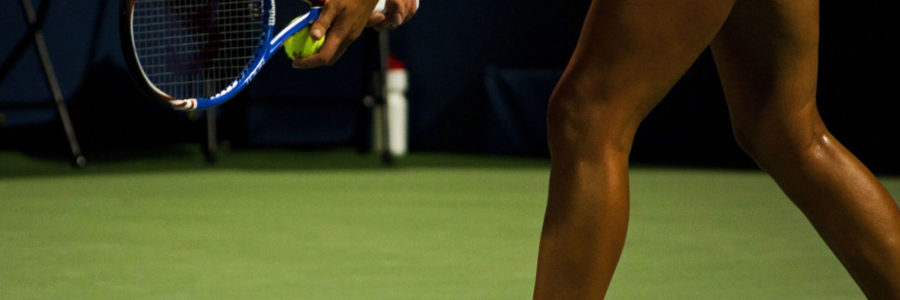To say that I was a tennis player would be a stretch. Although I love the game and like to play when I can, in reality I spend more of my time as a spectator.
My son and husband are both passionate about tennis, so between watching professional tennis matches live and on TV or sitting on the sidelines during my son’s lessons and USTA matches, I have developed an appreciation for the intricacies of the game.
The better educated I become, the more grateful I am for the lessons my son is learning that extend to his life on and off the court.
Here are some of the parallels you can draw to life:
Success takes an enormous amount of hard work
Succeeding at tennis, like all sports, takes focus and discipline. Players must be dedicated to their goals in order to achieve success. They discover that if they are willing to put in the time and effort, they will improve and succeed; and this lesson will carry over into their academic life and future careers.
It is not about how many times you fail, but how many times you get back up
In tennis you lose more than you win. At the end of the tournament, only one person goes home with the winning trophy. Players may have won many matches to get to the semifinals or finals; but in the end, without the trophy in hand, they are not completely satisfied with the result.
It never ceases to amaze me how these young kids put themselves out there week after week. Even behind the glass watching the matches, you can feel the immense pressure. As parents watch the outcome of every point, you can hear a pin drop. Disappointed faces are hard to cover up when their child loses the point or match. Emotions seen on the court exhibit the players’ fear of not only letting themselves down but the people around them.
The lessons they learn from losing a match can be far greater than if they had won.
- Losing a match isn’t the end of the world. Life goes on
- Appreciate the small victories even within the matches that were lost
- Failure is a temporary setback; continued practice and focus are required to achieve success
- Experiencing loss and the feelings that surround a loss, can make victory even sweeter. In life, we sometimes have to experience suffering to recognize real joy
Learn how to handle emotions and lose gracefully
We often see kids come off the court banging their racquets, yelling at themselves or their opponents. Most of them learn pretty quickly that this is poor sportsmanship. A good sport gives his or her opponent credit for the game they have played. Recognizing an inappropriate public display of emotions is part of being a good sport. A successful tennis player will use the loss as an opening to understand what they need to work on to become a better player.
We are all faced with defeat in our lives, and sports provide us the experiences for learning to handle defeat
You are accountable, and you are in charge of your own destiny
As an individual sport, the outcome of the match is solely your creation. There are no time limits in tennis. No matter how far behind you are, it is plausible that you can make a comeback and win the match.
You control your own destiny on the court and in life
Belief in yourself and the power of the mind are critical to success
As important as conditioning to support the physical requirements of tennis, mental toughness is what can separate the top players. A momentary lapse in focus or confidence can change momentum quickly and cost you the match. In many instances, the winner is the player that could isolate himself from the distractions.
In life and on the court, always keep your eye on the ball
You can never be fully prepared for what life throws at you, but how you handle those moments can make all the difference
Tennis players are giving us a performance. However, unlike lines in a play that can be recited over and over until committed to memory, or a dance that when rehearsed enough allows the body to move to the music almost on its own, a tennis player cannot prepare for every shot that is going to come at them. The variations can be infinitesimal, dictated by speed, angles, topspin, backspin, flatter, higher, weather, and surface. No two shots are ever identical. The player has a split second to make a judgment on where they want to place the returning shot and how the body needs to be aligned in order to achieve that result.
You can never fully prepare for life or a match. but critical decisions made at key points on the court or in our lives can determine the outcome
I am happy that my son has found something for which to be so passionate. I am impressed with his dedication and commitment to the sport. The young USTA players deserve immense credit for their resilience. As a child, I don’t know if I could have handled that pressure or the range of emotions–or had the buoyancy to continually put myself out there.
No matter what role tennis ends up playing in my son’s life, I am confident the lessons he has learned on the court will help him to succeed in his journey of life.
Melissa Reagan Brunetti
Tennis Mom, Freelance Writer, Certified Nutritionist

